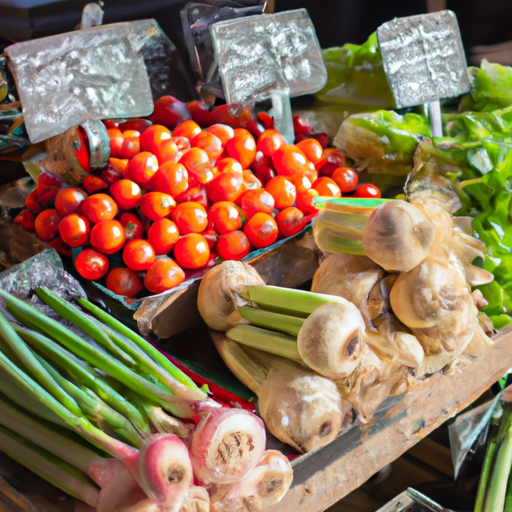Are you considering adopting a vegan lifestyle but worried whether a vegan lifestyle will make you obese? Rest assured, a vegan diet can actually help you maintain a healthy weight and even shed those extra pounds. By choosing nutrient-dense foods and practicing portion control, you can enjoy the benefits of a plant-based diet without worrying about obesity. Incorporating physical activity into your routine and practicing mindful eating will further support your weight management goals.
Additionally, understanding the basics of a vegan diet and seeking professional guidance can provide you with the necessary tools to thrive on this lifestyle journey.
Remember, you are not alone in your quest for health and vitality – there is an entire community waiting to welcome you with open arms as you embark on this exciting adventure toward wellness.
So fear not, embrace the possibilities that a vegan lifestyle offers and join others who share your desire for belonging while maintaining a healthy body weight.
Understanding the Basics of a Vegan Diet
Are you curious about the ins and outs of a vegan diet and how it can impact your health and weight? Well, let’s dive in!
When it comes to following a vegan lifestyle, it’s all about understanding the basics of a vegan diet. One key aspect is vegan meal planning.
This involves carefully choosing plant-based foods that provide all the necessary nutrients for your body while keeping you satisfied.
Vegan meal planning can be exciting and fun as you explore new flavors and ingredients.
You’ll discover a whole world of plant-based foods that can easily replace animal products in your favorite recipes.
These are known as vegan substitutes.
Whether it’s using tofu instead of meat or almond milk instead of cow’s milk, there are plenty of options available to suit your taste buds.
By incorporating these vegan substitutes into your meals, you won’t miss out on any essential nutrients or delicious flavors.
In fact, many people find that their taste buds adapt over time, and they start to crave these plant-based alternatives even more than their previous animal-based choices.
So don’t worry!
Following a vegan lifestyle doesn’t mean sacrificing taste or nutrition. With proper meal planning and the use of tasty vegan substitutes, you can enjoy a healthy and fulfilling diet without the risk of obesity.
The Role of Portion Control
The key to maintaining a healthy weight is controlling the size of your portions. This is true for everyone, including those following a vegan lifestyle.
Portion sizes and weight gain are closely connected, and it’s important to be mindful of how much food you’re consuming.
When it comes to controlling food portions on a vegan diet, there are a few strategies that can help. First, listen to your body’s hunger and fullness cues.
Eat slowly and pay attention to when you start feeling satisfied rather than stuffed. It’s also helpful to use smaller plates and bowls, as this can trick your mind into thinking you’re eating more than you actually are.
In addition, make sure your meals contain a balance of macronutrients – protein, carbohydrates, and fats – as this will help keep you satiated for longer periods of time.
Include plenty of fruits, vegetables, legumes, whole grains, and plant-based proteins in your diet.
Remember, being vegan doesn’t automatically guarantee weight loss or prevent weight gain. It all comes down to portion control and making nutritious choices within the parameters of your vegan lifestyle.
By practicing portion control and making mindful food choices, you can maintain a healthy weight while enjoying the benefits of a vegan lifestyle.
Choosing Nutrient-Dense Foods
One way to ensure a healthy weight while following a vegan diet is by opting for nutrient-dense foods that nourish your body.
When it comes to maintaining a healthy weight, it’s important to choose nutrient-rich options that provide the necessary vitamins, minerals, and other essential nutrients without adding unnecessary calories.
By focusing on these types of foods, you can support your overall health and potentially promote weight loss if desired.
When selecting nutrient-dense foods, consider incorporating plenty of fruits and vegetables into your meals. These plant-based options are naturally low in calories but packed with essential nutrients like fiber, vitamins, and antioxidants.
They not only help you feel full but also provide numerous health benefits.
Additionally, whole grains such as quinoa or brown rice are excellent choices as they’re high in fiber and offer sustained energy throughout the day.
Incorporating plant-based protein sources like beans, lentils, tofu, or tempeh can also be beneficial for maintaining a healthy weight while following a vegan lifestyle.
These options offer essential amino acids while being lower in saturated fats compared to animal-based proteins.
Remember that portion control is still important even when choosing nutrient-dense foods. While these options may be healthier overall, consuming excessive amounts can still lead to weight gain.
Therefore, be mindful of serving sizes and listen to your body’s hunger cues.
By incorporating these vegan weight loss strategies into your lifestyle and focusing on nutrient-dense foods that nourish your body without adding excess calories, you can maintain a healthy weight while enjoying the benefits of a vegan diet.
Managing Your Caloric Intake
If you’re concerned about managing your caloric intake on a vegan diet, there are a few key points to understand.
First, it’s important to be aware of calorie density in vegan foods, as some may be more calorically dense than others.
Second, tracking and managing your calorie intake can be helpful in achieving your weight goals.
And finally, there are various tips and strategies that can assist you in effectively managing your calorie intake while following a vegan lifestyle.
Understanding calorie density in vegan foods
To truly understand the impact of calorie density in vegan foods, you need to consider how your choices can shape your overall health and weight. It’s important to debunk the misconception that all vegan foods are low in calories.
While whole plant foods like fruits, vegetables, and legumes tend to be lower in calorie density, processed vegan foods such as vegan cheeses or desserts can be high in calories.
Here are three key points to keep in mind:
- Don’t rely solely on processed vegan alternatives for weight loss. These foods may be tasty, but they can also be dense in calories.
- Incorporate more whole plant foods into your diet. Fruits, vegetables, and legumes have a lower calorie density and can help with weight management.
- Pay attention to portion sizes. Even healthy vegan options can contribute to weight gain if consumed excessively.
By understanding calorie density and making informed choices, you can enjoy a balanced vegan lifestyle while maintaining a healthy weight.
Tips for tracking and managing your calorie intake
Tracking and managing your calorie intake can be a helpful tool in maintaining a healthy weight and achieving your fitness goals.
By keeping an eye on the calories you consume, you can ensure that you are not overeating or under-eating, both of which can hinder your progress.
Balancing macronutrients is another important aspect to consider when managing your calorie intake.
It’s essential to include a good balance of carbohydrates, proteins, and fats in your meals to provide your body with the necessary nutrients it needs for optimal functioning.
Effective meal planning is key in tracking and managing your calorie intake. By planning ahead and preparing meals in advance, you can have better control over portion sizes and make healthier choices.
Additionally, meal planning allows for more variety in your diet, making it easier to stick to a vegan lifestyle without feeling deprived.
Here is an example of a simple table that could help guide your meal planning:
| Meal | Calories | Macronutrient Balance |
|---|---|---|
| Breakfast | 400 | Carbs: 50%, Protein: 25%, Fat: 25% |
| Lunch | 500 | Carbs: 40%, Protein: 30%, Fat: 30% |
| Dinner | 600 | Carbs:45%, Protein:35%, Fat:20% |
| Snack | 200 | Carbs:60%, Protein:15%, Fat:25% |
| Total | 1700 |
Remember, everyone’s caloric needs vary depending on factors such as age, gender, activity level, and overall health.
Consulting with a registered dietitian or nutritionist can provide personalized guidance on balancing macronutrients and effective meal planning to meet your specific needs while following a vegan lifestyle.
Incorporating Physical Activity
Get ready to embrace an active lifestyle and watch the pounds melt away with regular exercise while living a vegan lifestyle.
Incorporating physical activity into your daily routine not only helps you stay fit but also enhances your overall well-being.
Here are some physical activity benefits and exercise recommendations to help you on your journey:
- Increased Energy: Engaging in regular physical activity boosts your energy levels, making it easier for you to stay active throughout the day.
- Weight Management: Exercise plays a crucial role in maintaining a healthy weight. By combining a vegan diet with regular workouts, you can achieve your weight loss goals more effectively.
- Stronger Muscles and Bones: Physical activity helps strengthen your muscles and bones, reducing the risk of injuries and improving your posture.
To reap these benefits, aim for at least 150 minutes of moderate-intensity aerobic exercise or 75 minutes of vigorous-intensity aerobic exercise each week.
You can choose activities such as brisk walking, cycling, swimming, or dancing that align with your interests.
Remember to start slowly if you’re new to exercising and gradually increase the intensity and duration over time. Find activities that bring you joy and make them a part of your routine.
Embrace an active lifestyle while enjoying the many advantages it brings along with following a vegan lifestyle.
Mindful Eating and Emotional Well-being
Incorporating mindful eating into your daily routine can greatly improve your emotional well-being. When you adopt a vegan lifestyle, it’s important to pay attention not only to what you eat, but also how you eat.
Mindful eating involves being fully present and aware of the food you consume, as well as your hunger and fullness cues. This practice can help you develop a healthier relationship with food and prevent emotional eating.
To illustrate the benefits of mindful eating for emotional well-being, let’s take a look at this table:
| Mindful Eating | Emotional Well-Being |
|---|---|
| Helps reduce stress levels | Promotes self-acceptance |
| Enhances body positivity | Fosters a sense of gratitude |
| Encourages intuitive eating | Improves overall mood |
| Supports better digestion | Cultivates mindfulness |
By incorporating mindful eating into your vegan lifestyle, you are not only nourishing your body with nutritious plant-based foods but also nurturing your mind and emotions.
Mindful eating allows you to savor every bite and truly enjoy the flavors and textures of your meals. It helps create a positive connection between food and emotions, promoting self-acceptance, gratitude, and overall well-being.
Remember that adopting a vegan lifestyle is about more than just the physical aspect; it’s also about finding balance in all aspects of life, including emotional well-being.
So take some time each day to practice mindful eating and reap the benefits it brings to both your body and mind.
Seeking Professional Guidance
If you’re considering a vegan lifestyle and have concerns about weight management, it’s important to seek professional guidance. Consulting with a registered dietitian or nutritionist can provide you with personalized advice tailored to your specific needs and goals.
They can help ensure that you maintain a healthy weight while following a vegan diet, offering valuable insights and strategies for successful weight management.
Consulting with a registered dietitian or nutritionist
Consulting with a registered dietitian or nutritionist can provide valuable insights and personalized guidance to ensure that a vegan lifestyle supports weight management goals.
These professionals have the expertise to help you navigate the world of veganism and develop a well-rounded meal plan that meets your nutritional needs while keeping you on track with your weight goals.
In addition to providing advice on balanced meals, they can offer creative and delicious vegan meal ideas that incorporate plant-based protein sources.
This ensures that you are getting enough protein while avoiding excessive calories. They can also guide you in choosing nutrient-dense foods like fruits, vegetables, whole grains, and legumes, which are essential for maintaining a healthy weight.
To give you an idea of the variety available within a vegan diet, here is a table showcasing some plant-based protein sources:
| Protein Source | Serving Size | Protein Content |
|---|---|---|
| Lentils | 1 cup | 18 grams |
| Quinoa | 1 cup | 8 grams |
| Tofu | 1/2 cup | 10 grams |
| Chickpeas | 1 cup | 15 grams |
By consulting with these experts, you can confidently embrace a vegan lifestyle without worrying about obesity. They will empower you to make informed choices and support your journey towards optimal health and weight management.
The importance of personalized advice for weight management on a vegan diet
Now that you’ve consulted with a registered dietitian or nutritionist, it’s time to understand the importance of personalized advice for weight management on a vegan diet.
You see, everyone’s body is unique, and what works for one person may not work for another. That’s why having personalized meal plans is crucial when it comes to achieving your weight loss goals as a vegan.
Here are three reasons why personalized advice is essential:
- Tailored Approach: A registered dietitian or nutritionist will take into account your specific dietary needs, preferences, and lifestyle factors to create a meal plan that suits you best.
- Targeted Strategies: They’ll provide you with targeted vegan weight loss strategies that are effective and sustainable in the long term.
- Supportive Guidance: Having someone who understands your goals and provides ongoing support can make all the difference in staying motivated and accountable throughout your weight loss journey.
With personalized advice, you can confidently embark on your vegan weight loss journey, knowing that you’re equipped with the right tools and guidance to succeed.
Conclusion
In conclusion, transitioning to a vegan lifestyle won’t automatically make you obese. By understanding the basics of a vegan diet and practicing portion control, you can maintain a healthy weight.
It’s important to choose nutrient-dense foods, manage your caloric intake, and incorporate physical activity. Additionally, practicing mindful eating and emotional well-being are crucial. Remember, a vegan lifestyle can be both healthy and fulfilling for your body and the planet.
Don’t forget to seek professional guidance if needed to ensure you’re meeting your nutritional needs.



